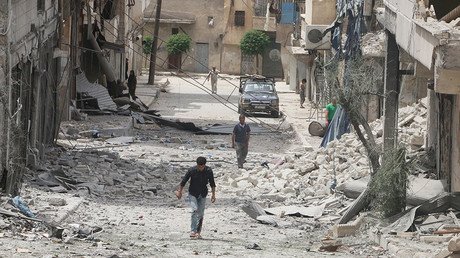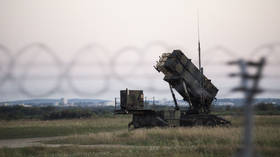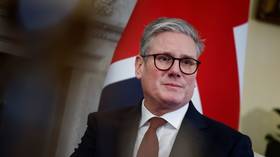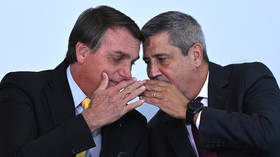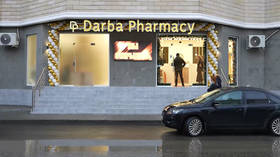'US spending millions on 'Aleppo is burning' PR campaign to create no bombing zone'
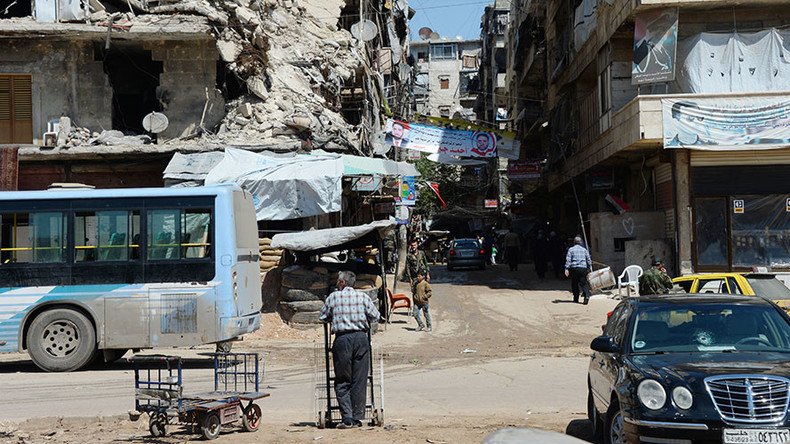
The Syrian conflict involves a public relations war with a level of sophistication we’ve never seen before, geopolitical analyst Patrick Henningsen told RT.
Russia and the US agreed Wednesday to extend the ceasefire in Syria to Aleppo, the country's second largest city. The Syrian government has accepted the terms of the agreement, with the Syrian Army saying the ceasefire will come into effect on Thursday night and will last for 48 hours.
“There has been reporting from The Wall Street Journal that the CIA [Central Intelligence Agency] has a so-called ‘Plan B’ – that if the ceasefire fails, if the Geneva talks fail they will dramatically increase their arms supplies to the moderate opposition. That is obviously not a good incentive. It means some moderate opposition people will say: ‘Why do we have this ceasefire? Why do we have these talks? Because we will get better weapons, if everything breaks down.’” – Guardian columnist Jonathan Steele told RT.
RT: How much of an effect could the ceasefire, agreed by Moscow and Washington, have on the situation in Aleppo?
Patrick Henningsen: I don’t think it is really going to change the situation on the ground. I think what you have is a situation where extremist groups – call it moderate rebels, or call it terrorist groups – they are going to use the ceasefire to buy time to get reinforcements lined up to establish new supply lines that have been damaged… by Russian airstrikes over the last couple of months. The problem is that Al-Nusra Front, or Ahrar ash-Sham, or all these terrorist groups that are operating freely in Syria in these rebel – held areas – they are ubiquitous with the so-called opposition. You can’t separate them; this is just a game, this is being played. The US knows this quite well. Meanwhile, the diplomats have to play the diplomatic due process. So they are doing their job, but behind the scenes there is whole other agenda playing out.
RT: US Defense Secretary Ashton Carter recently accused Russia of fueling the civil war by supporting Assad. Could such statements make it more difficult for Russia and the US to work together on the peace effort?
PH: Firstly, the US Defense Secretary is using language that doesn’t actually apply to this conflict. He is doing this to try to re-frame the narrative. He is calling it a civil war. This is not a civil war by any stretch of the imagination. It ceased being a civil war back in 2011, maybe early 2012, but after that it is anything but a civil war. This is a conflict, it is a proxy war.
What you have is the US will do what is called a ‘strategy of confusion’ in terms of public relations. So John Kerry is the good cop, he is there with Sergey Lavrov trying to hammer out a peace deal in Geneva. And Ash Carter is playing the bad cop – he is making inflammatory statements that are trying to characterize Russia as a bad guy. And then President Obama might have another statement that he does, and the State Department spokesman will say something else. This is what the US does constantly; this is their strategy of PR confusion, so that no-one knows exactly where they stand on any of the issues. This is used to basically obscure and cover up what is essentially a dirty war going on the ground in Syria right now.
RT: Russia, meanwhile, has said it is not supporting the Assad government. Why would the US object to what Russia is doing?
PH: I think it’s out of frustration. Russia came in with a very clear objective back in October, 2015 and they achieved that objective by a lot of people’s estimation. Then they receded their operation, and they packed up and left a large portion of their military footprint there. This upset everybody because the US was saying that Russia was being dragged into a quagmire. At every turn the narratives that are being conjured up by the State Department are getting knocked down and disintegrating. This is just I believe frustration; this is a PR war. We’re looking at a public relations war. The US and George Soros have spent millions of dollars over the last couple of weeks launching ‘Aleppo is burning’ – it is a PR campaign, designed to get people behind a no bombing zone. So the ‘no-fly zone’ became the ‘safe zone’, and now it is a ‘no bombing zone’. This is a public relations war with a level of sophistication we’ve never seen before.
The statements, views and opinions expressed in this column are solely those of the author and do not necessarily represent those of RT.
